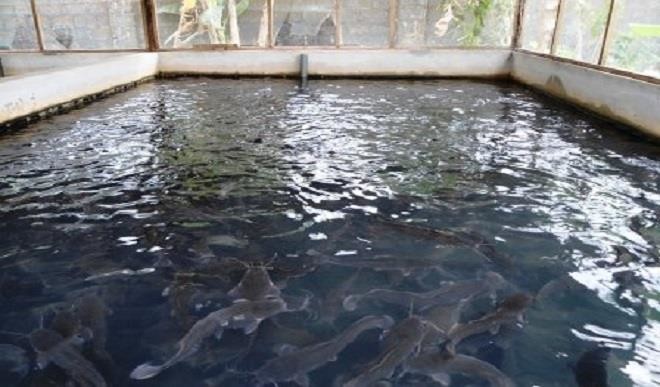Why fish farmers incur losses
In order to bridge the wide gap between local fish production and import-estimated at about 1 million metric tonnes per annum, local and foreign investors have been urged to invest heavily in fish farming. Our reporter spoke with experts who say successful investment in fish farming largely depends on good seed, which is the fingerlings […]


In order to bridge the wide gap between local fish production and import-estimated at about 1 million metric tonnes per annum, local and foreign investors have been urged to invest heavily in fish farming.
Our reporter spoke with experts who say successful investment in fish farming largely depends on good seed, which is the fingerlings and its handling during transportation and stocking.
They identified lack of technical know-how on the best way to transport fingerlings and stock fish pond as the reason why losses are incurred by fish farmers right from the onset.
One of the experts, Mr. Joshua Lukar, who is an experienced fish farmer, said the first thing to do is to avoid excessive handling when counting and sorting fingerlings for transportation and stocking as fish bruise easily and are stressed when handled roughly.
He advised farmers to go for older fingerlings which do not bruise easily and get stressed because bruise and stress attract other fishes and that could lead to cannibalism.
The fish farmer said adequate oxygen should be allowed into the water when transporting fingerlings either in oxygen bags or jerry cans so as to avoid mortality.
“Farmers should procure their fingerlings from nearby reliable sources in order to avoid long distance journey and rough roads which could lead to stress,” he advised.
Another expert, Mr. Idoko James, said farmers should transport or stock fingerlings early in the morning or late in the evening when the temperature is lower and the fish is less active to avoid temperature shock.
He stressed that high temperatures and shocks can cause serious losses as many of the fingerlings could eventually die.
The expert advised farmers not to transfer the fingerlings into the ponds immediately after arrival to also avoid shock, adding that “overstocking should be avoided to allow the fish adequate space so as to discourage competition for feeds and cannibalism if the farmer wants to succeed.”
Mr. James further advised farmers to keep the fishes from getting too cold or too warm as they are cold blooded animals that depend on ambient temperature.
He said Asian, European and American countries, North and South fish farmers are reported to have adequate technical know-how on the best practices in fish farming and that is why they are churning out millions of tonnes of fish annually for local consumption and export, but Nigeria seems to be lagging behind.
